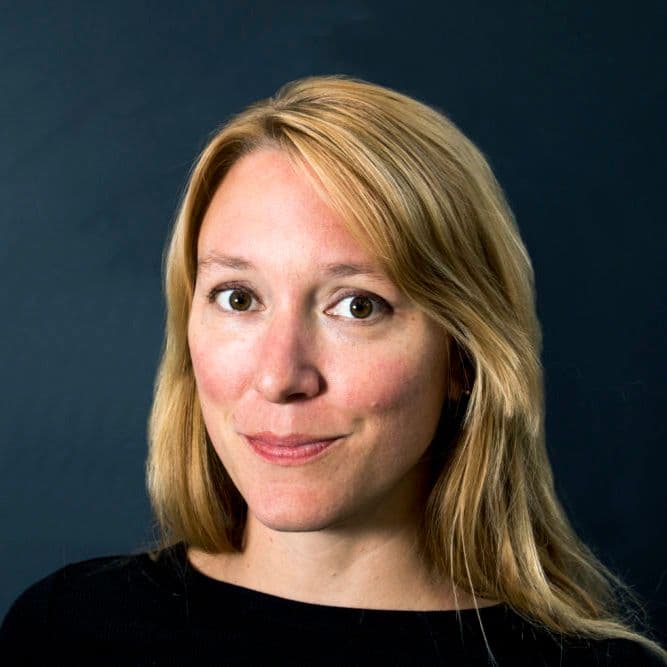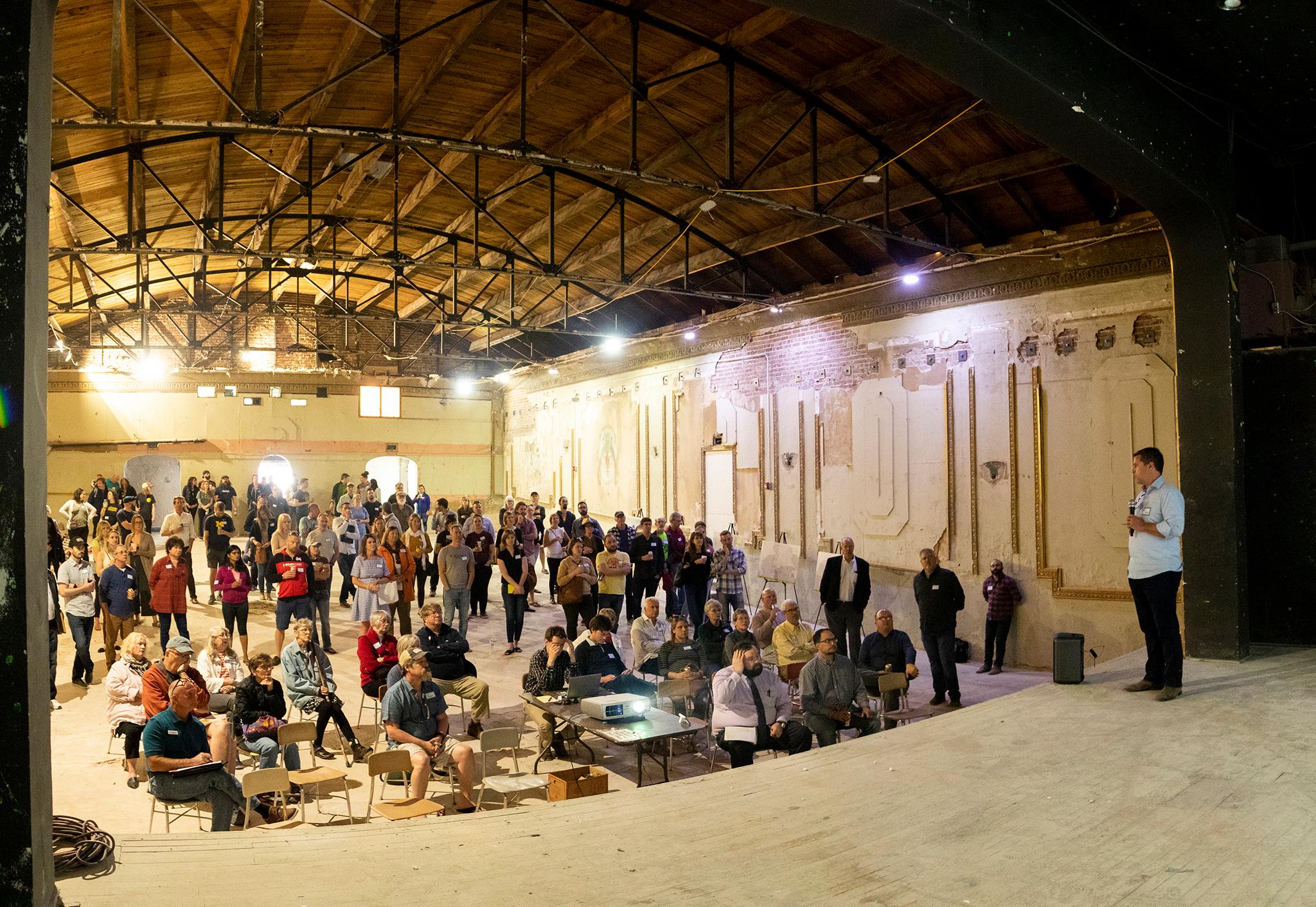It's been about half a year since the wheels started turning on an effort to restore and reopen the Yates Theater in Berkeley, and things are starting to creep forward.
The developer, Downtown Property Services, has a plan, renderings and a promise to be a good neighbor. Berkeley neighbors have concerns.
But conversations between those neighbors and developers Ken Wolf and Ari Stutz -- the team behind Denver Central Market -- have made progress. Since Denverite first reported the story in early December, at least one skeptical neighbor has come around.
"In speaking with the owner and learning more about the project I have really -- I'm supportive of it this in a way that has kind of caught me off guard," said Heather Noyes, who has lived in the neighborhood for 30 years.
"Six months ago when the liquor license application was submitted and we didn't know anything about the project and we didn't have any answers to the ongoing list of questions that were raised by neighbors, I was incredibly concerned about the impact. And I remain incredibly concerned about the impacts of this project. But I have met multiple times with the owner and I have had discussions and he's taken my phone calls and he's let me vent in front of him and let me curse in front of him and I think he understands my trepidation."
Speaking to Denverite on Thursday afternoon, Noyes said she's been regularly emailing project updates and concerns to her neighbors. She said they might be surprised to hear her speak in favor of the project during a Thursday night meeting.
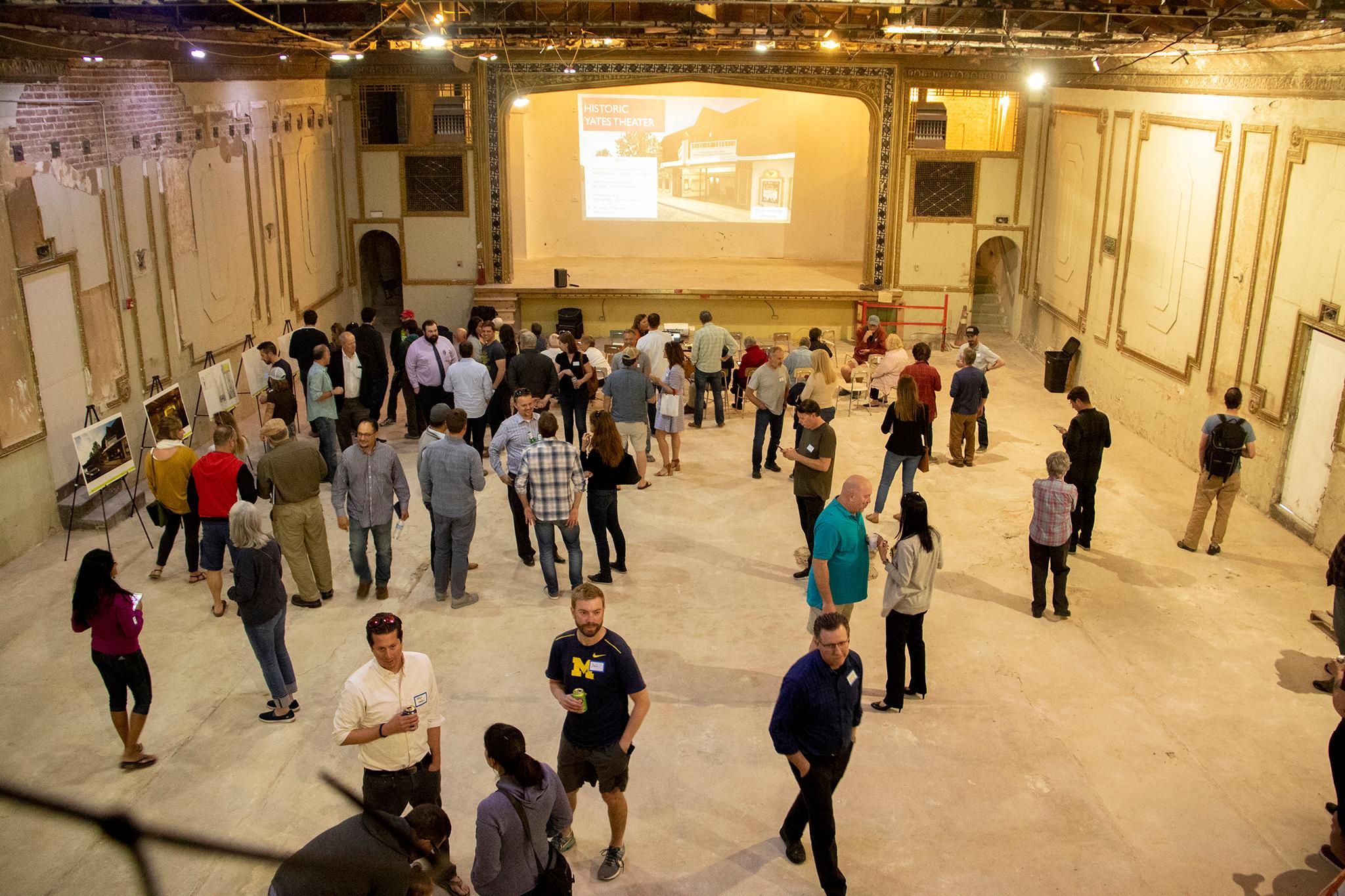
In that meeting, Stutz presented the gathered neighbors with his and Wolf's plan.
"The purpose of this meeting is to negotiate a good neighbor agreement with the neighborhood. We want to be a good neighbor there," Stutz told Denverite on Wednesday.
Here's the plan.
Stutz and Wolf want to turn the Yates Theater into an upscale theater that can be used for a variety of things -- concerts, comedy, community events. The space could hold 600 to 700 people, but Stutz said, "I don't think that's really going to happen." They're hoping to book smaller shows and feature local bands. They'd also like to do comedy and are "trying to be in touch with Denver Comedy Works," and hope to work with local schools to host their events and performances.
If this sounds familiar, it's because it sounds a bit like the Oriental Theater, also in Berkeley at Tennyson and 44th streets. That'll be two big-ish venues in a part of Denver somewhat removed from the clusters of venues near the city center.
If they do book bigger shows, he said, it'd likely be because AEG can't fit the act into the schedule at one of its many Denver venues.
They're working with Jerri Theil, a Denver music scene mainstay who came up under iconic Colorado promoter Barry Fey and once ran the Bluebird and Ogden theaters.
Another goal: use the front-of-house space as a neighborhood bar when there's no event happening. They're applying for a tavern liquor license because they don't think they can build a kitchen inside, Stutz said, though they're hoping the restaurants nearby can provide food for some events.
"We think there's a really good mix of programming we can put in there that can both allow us to generate type of revenue it takes to run this space and be in it and really be part of the community," Stutz said.
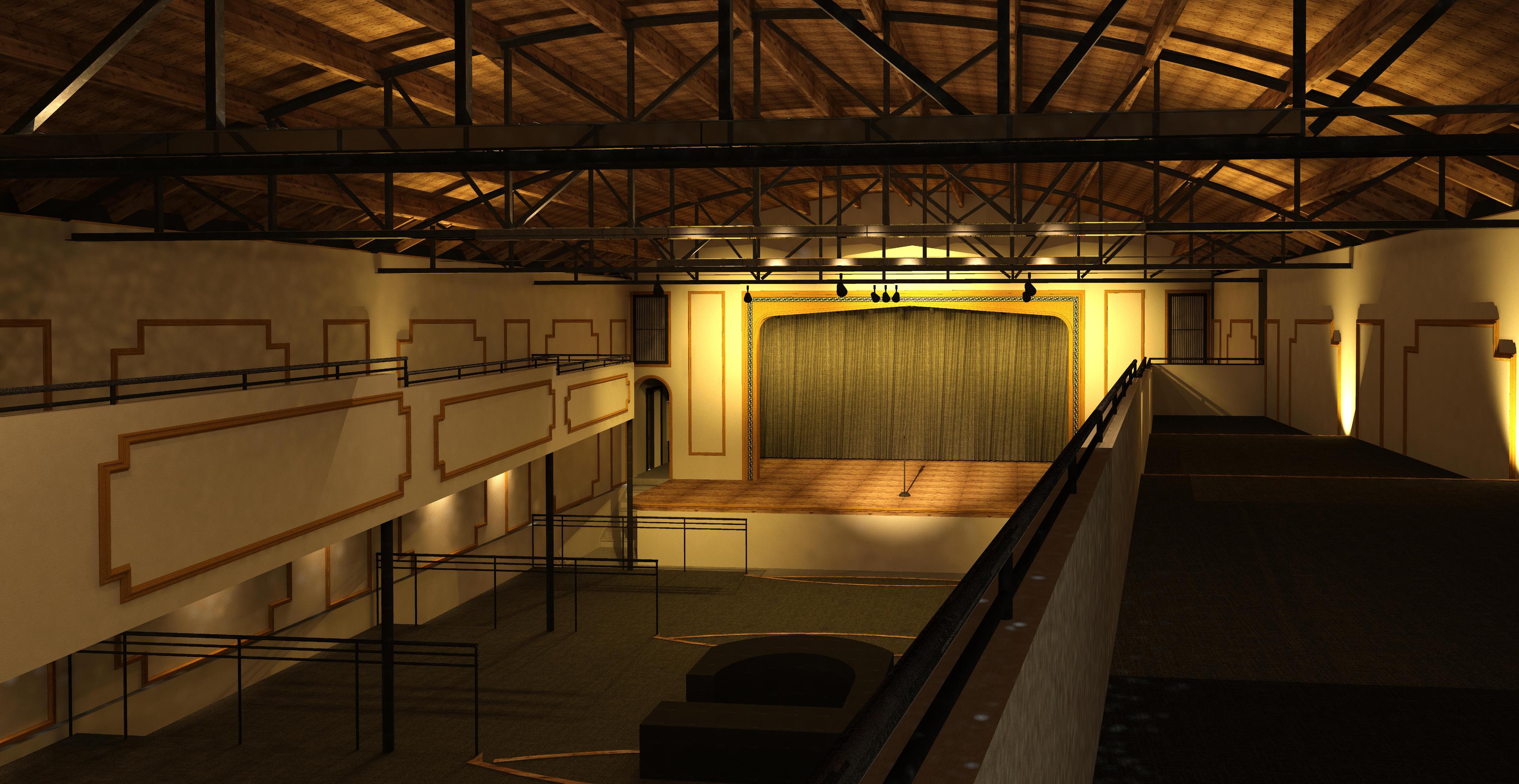
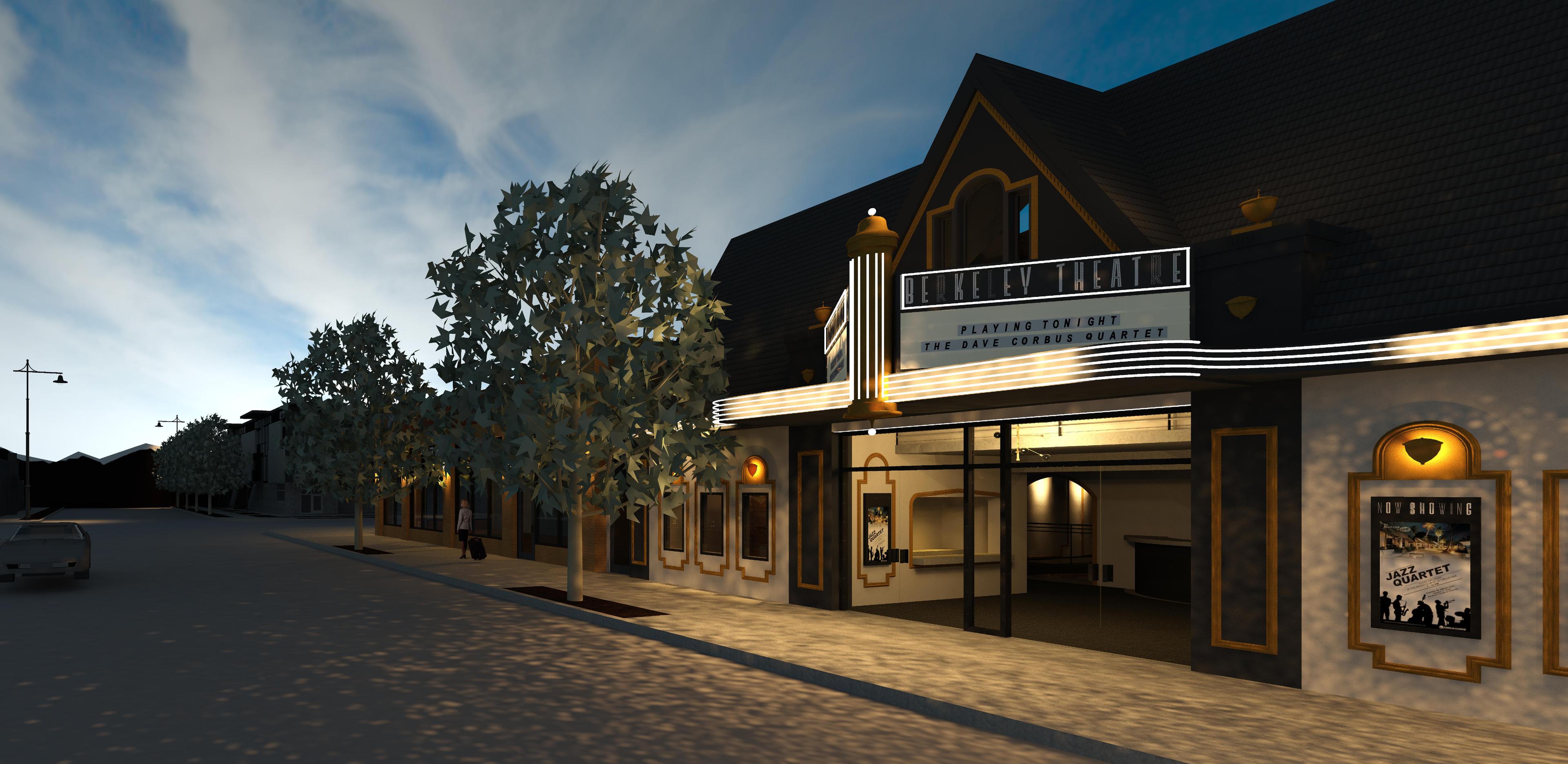
Neighbors are primarily worried about parking, traffic and noise.
The theater is just off the corner of 44th and Yates streets. It's next door to an Amethyst Coffee, which is in a building on the corner also owned by Stutz and Wolf. Right down the street, on another corner, is Crow Bar. It's a relatively quiet neighborhood made up largely of single-family bungalows.
"My quality of life is going to be impacted when they have big events," Noyes told Denverite before the meeting. "I don't care if everybody says, 'Oh, 50 percent of the people arrive by Uber and Lyft.' I don't believe that there is statistical evidence to prove that. Even if it's half, that's 350 people (cars) in my neighborhood."
Many of the garages in the area are old and don't fit most modern cars, she said, except the big new homes on scraped lots.
Stutz said they've heard the neighborhood's concerns and have built a list of ways they'll hope to address them, including:
- Sound mitigation in the building
- Finding off-street parking, maybe from other commercial property owners who aren't using their lots at at night
- A security team to do a sweep of the surrounding blocks after shows
- Trash pickup within a certain radius of the building
- On bigger event nights, they'll limit operating hours to something less than the liquor license requires, likely 1:30 a.m. for Thursday, Friday and Saturday night shows and 12:30 a.m. for other nights of the week
"We understand the proximity to residential and the need for us to be a good neighbor," he said.
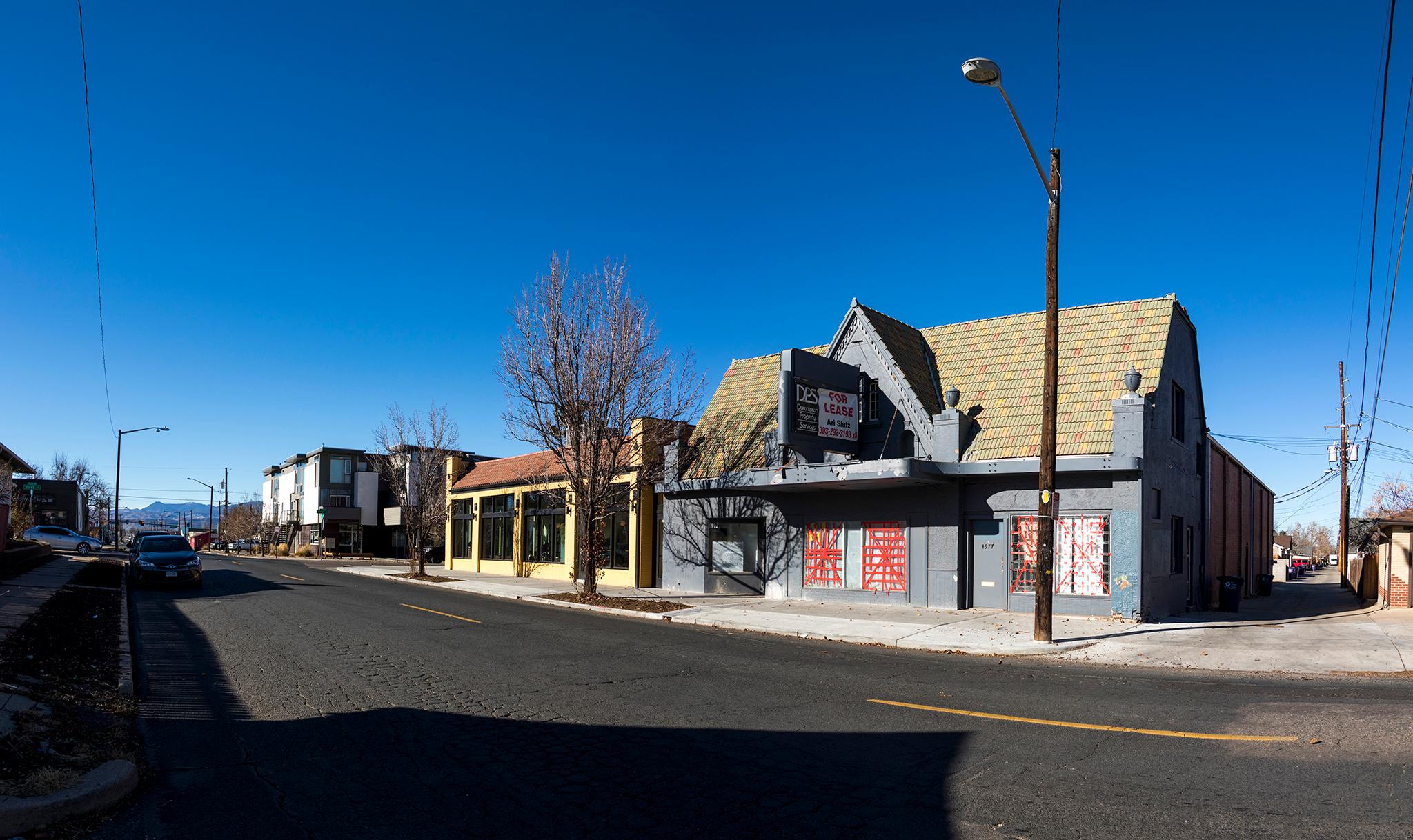
During the Q&A portion of Thursday's meeting, Gary Christiansen asked how Stutz would be held accountable for the promises he made during his presentation.
He lives across the street and is concerned that Stutz's rosy vision and plans for a good neighbor agreement might turn out worse than it sounds.
Councilman Rafael Espinoza, who attended the meeting, answered that question.
"There is always that risk," he said.
But, based on what he said he knows about Stutz's prior projects, he was confident those promises would not be broken.
"I'm going to go out on a limb here," he said. "What you see here is exactly what you are going to get."
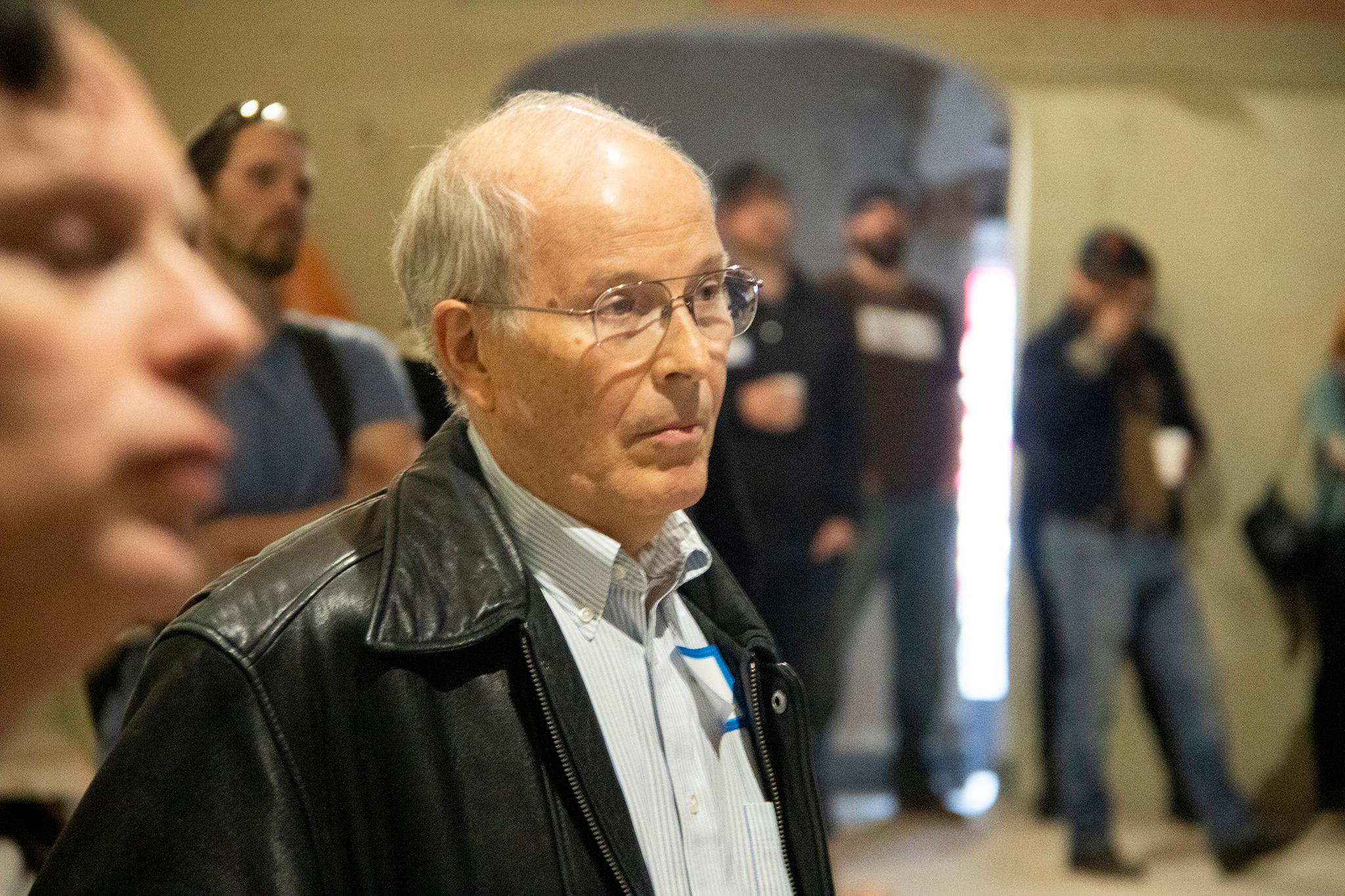
That scrape-off development Noyes mentioned is a sore spot in Berkeley and the reason the people who live there are wary of developers.
"We've seen developers come in here who turn their backs on this neighborhood. They're greedy, they don't invest in design and we pay the price for that," Noyes said.
She also described one of the initial hurdles to the project as a Catch-22 -- developers don't want to spend before they have a liquor license, but neighbors don't want to back a liquor license before developers have done the necessary work (and spent the money) to assure them they'll be good neighbors.
One of the things that swayed her in support of the Yates project was that Stutz and Wolf decided to spend the money to reassure the neighbors. One of the other things is their previous work just next door to the Yates.
"This is an opportunity for Berkeley to really benefit by the owner's vision, and his vision is backed by his money, and this is already in evidence by the investment he's made in the shop fronts on Yates Street," she said. "They're beautiful and they're adding economic vitality to that corner of Berkeley."
"I believe that the neighborhood and the city will benefit from this project," she added later, "and I know that I'm going to pay the price for that in the quality of life on my little block."
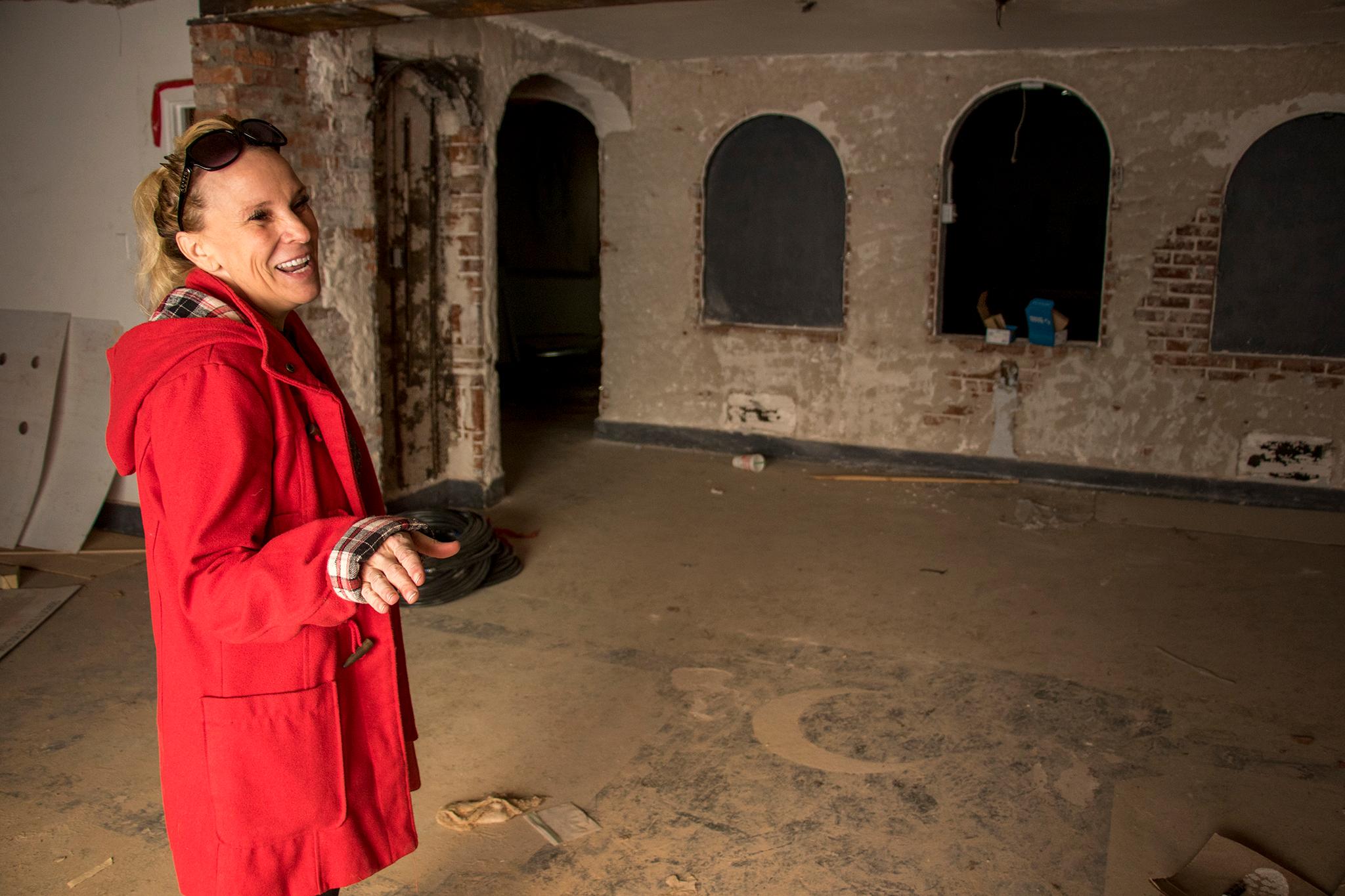
Historic Denver has been watching the project, too, and talking with Stutz and Wolf.
As Denverite reported in December, the theater was built in 1926 and some of its early history is a mystery.
Before Schultz bought it, the space was used as a piano shop. (You can read more about the history here.)
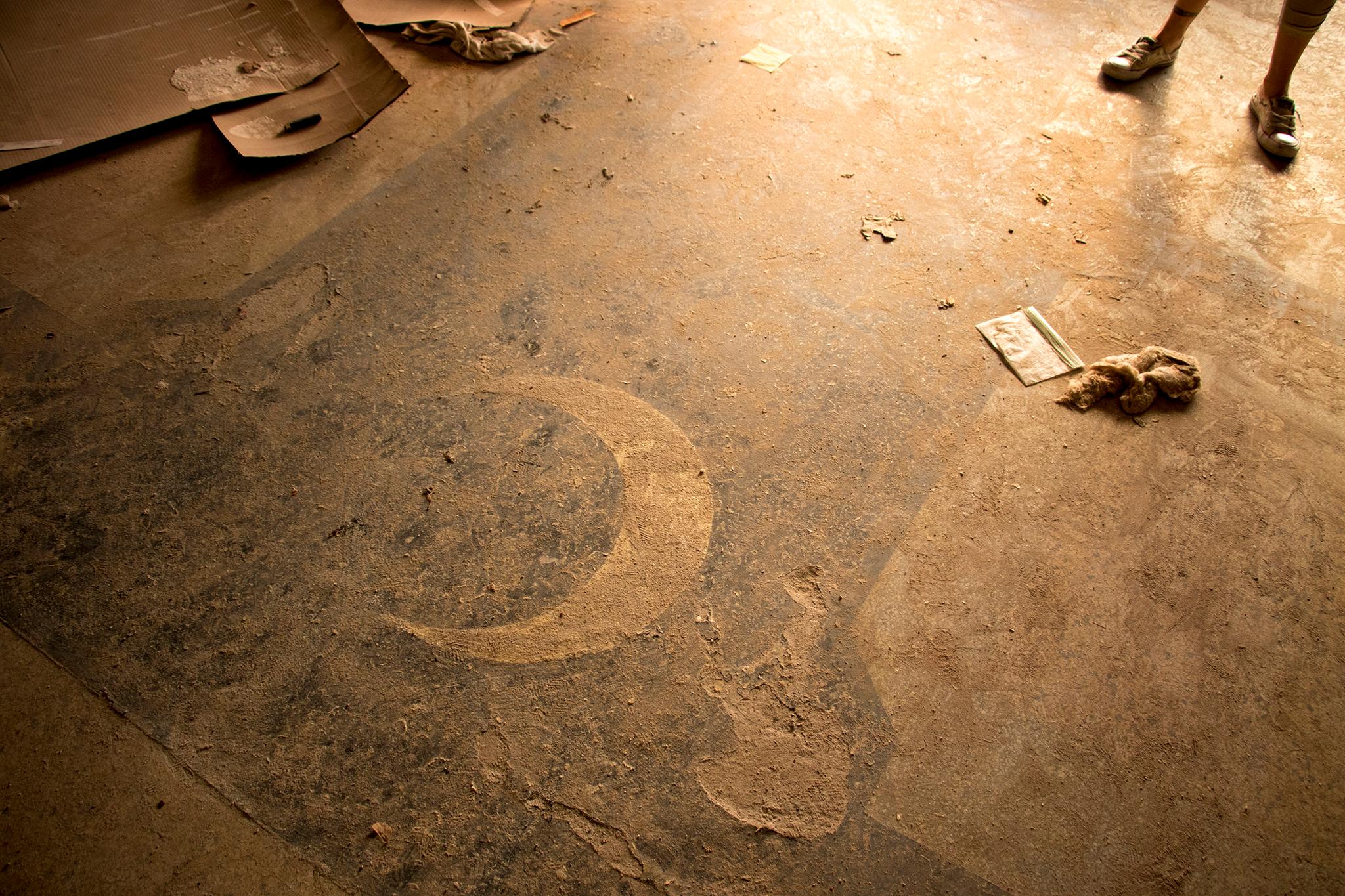
Executive Director Annie Levinsky said Historic Denver has offered their assistance. There's been a conversation about landmark status, but no decision about whether to pursue it.
"We think mostly it's important for it to continue to be used and become part of the neighborhood, whether it becomes a landmark or not," Levinsky said. "I think one of the things that's really neat about that building is that the building form really does invoke the style and scale of what's around it and that it's one of the last neighborhood theaters of it's kind."
Joe Upshaw III, who was born and raised in the neighborhood and attended Thursday's meeting, is excited about the possibilities.
"It'll be fun," he said. "That's why people move to neighborhoods like this."
The liquor license hearing is scheduled for May 8.
Kevin J. Beaty contributed to this report.
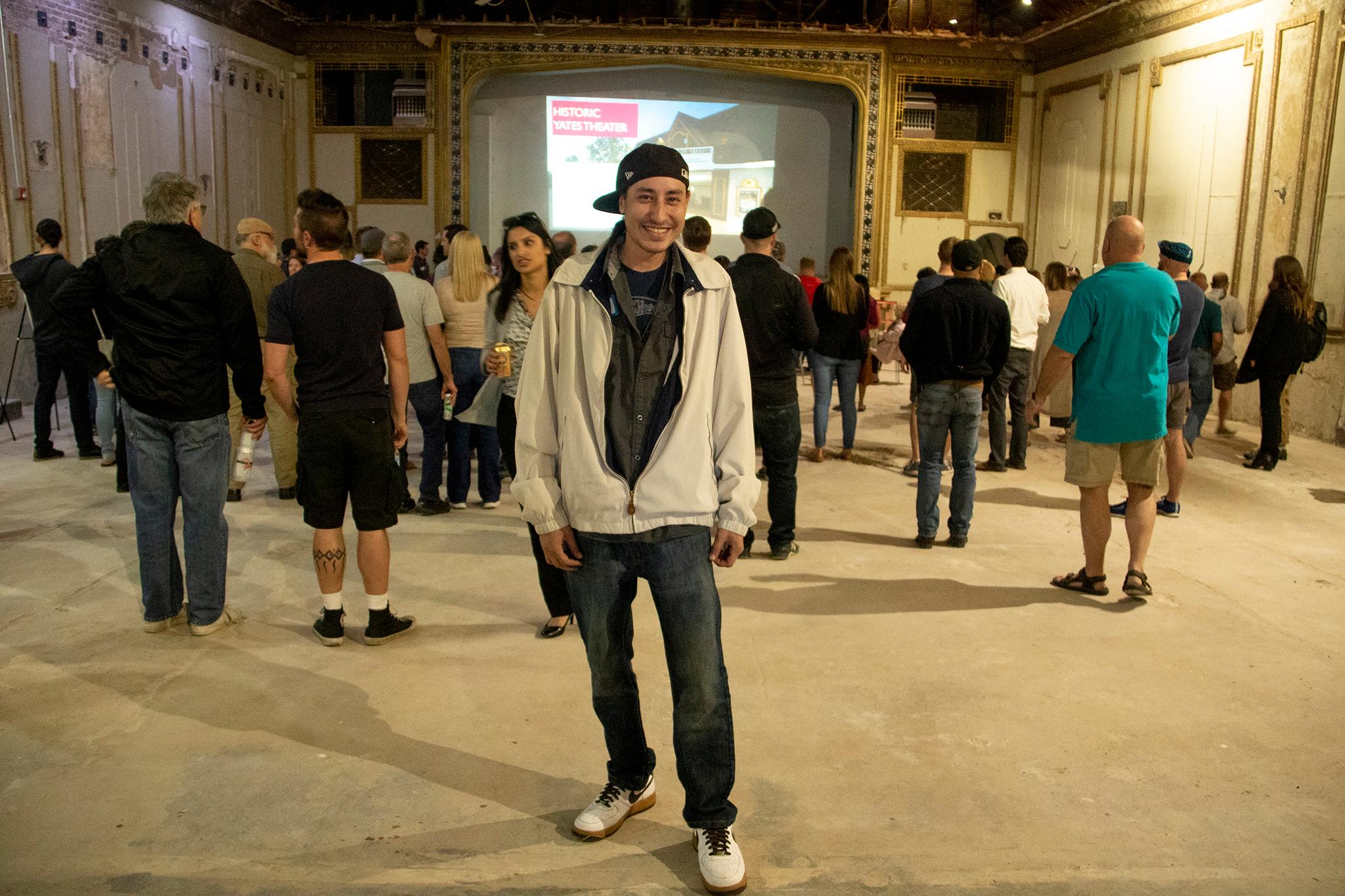
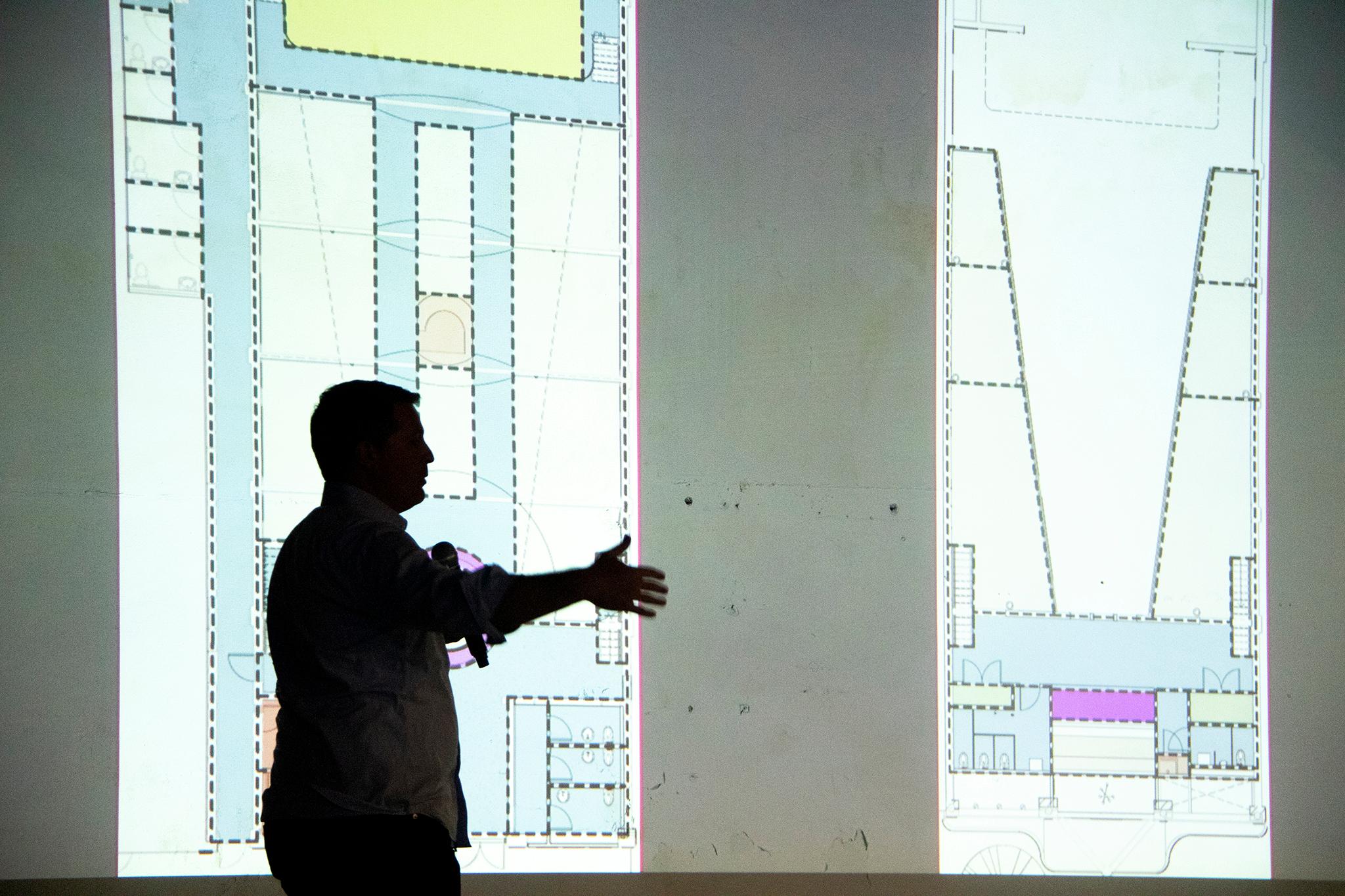
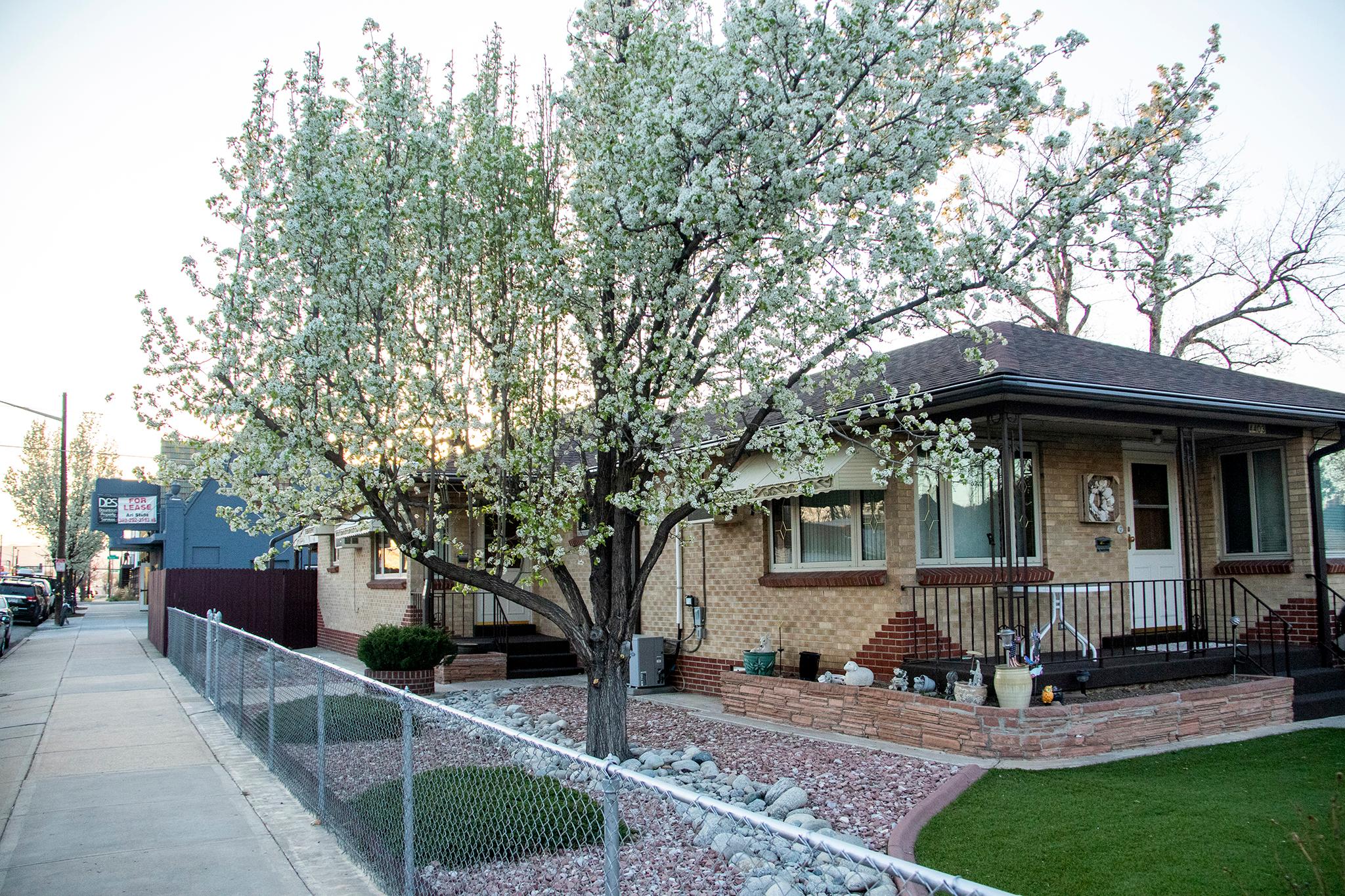
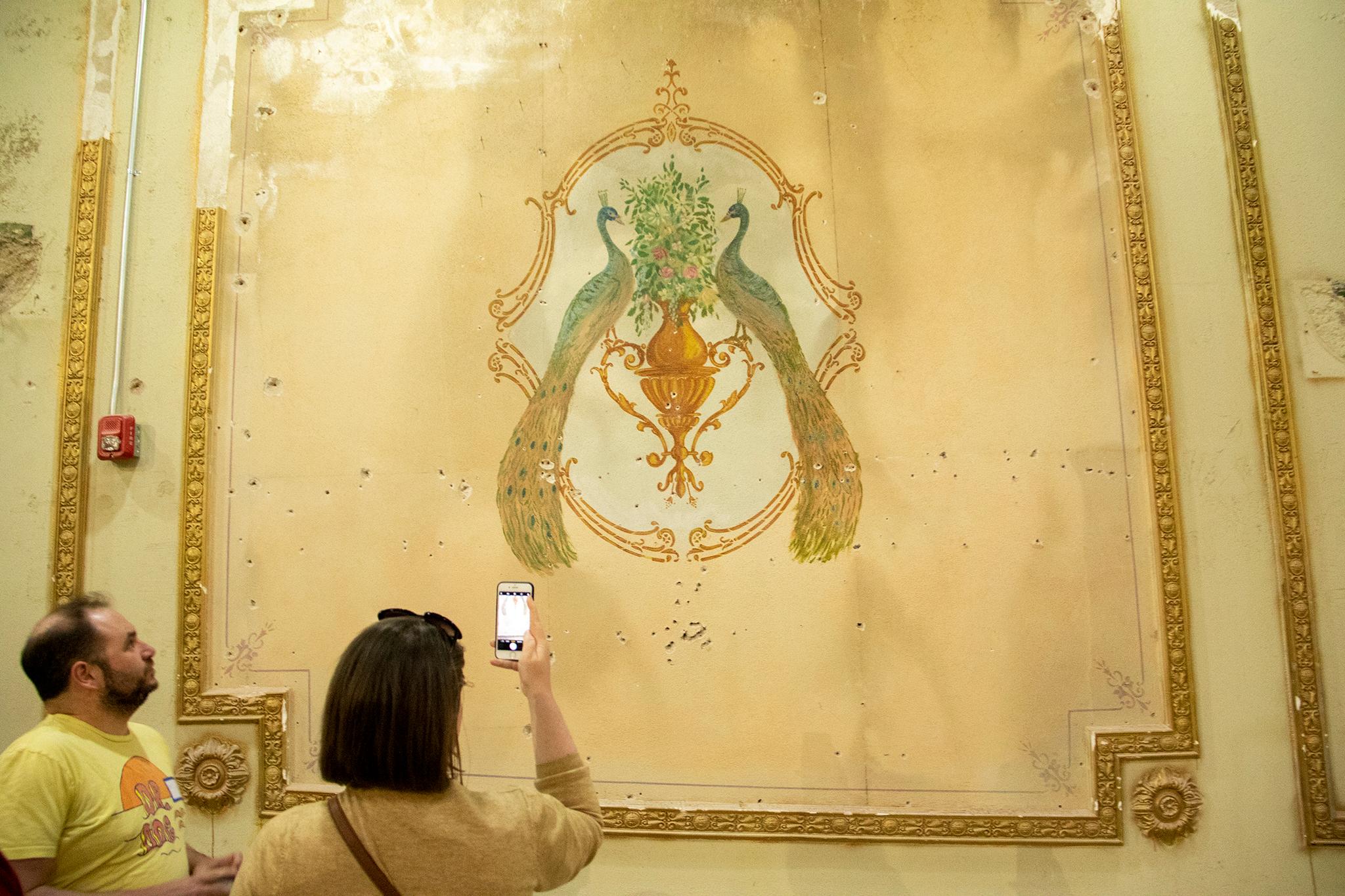
Clarification: An earlier version of this article overstated Heather Noyes' involvement in a neighborhood group.
